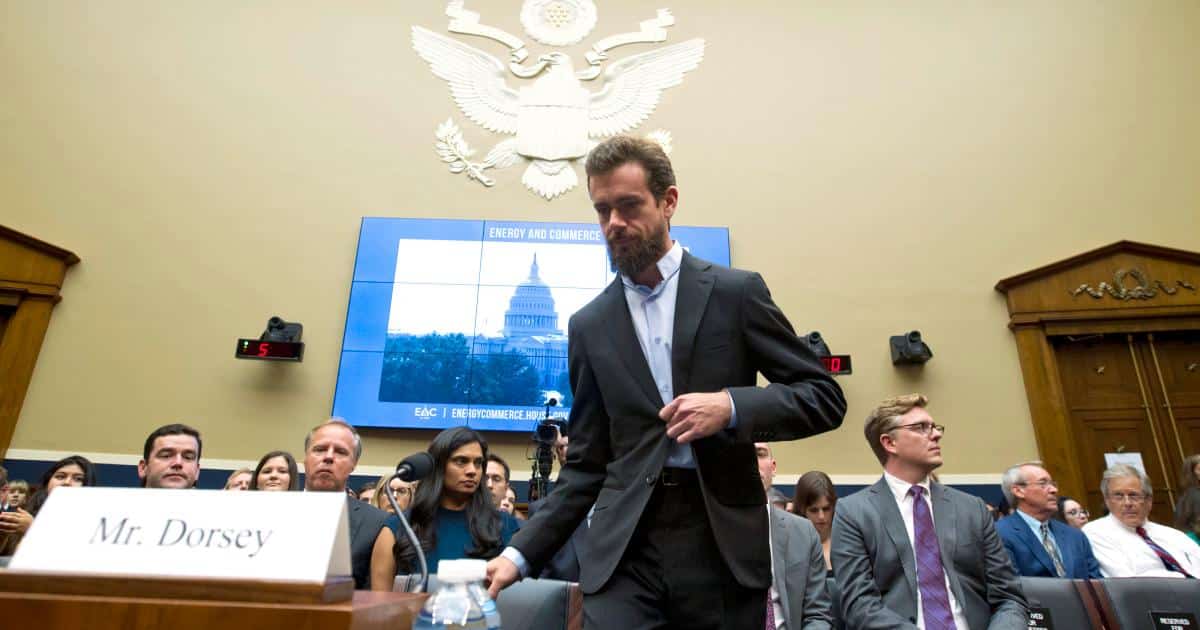For the third time in less than five months, the US Congress has summoned the CEOs of social media companies to appear before them, with the explicit intent to pressure and coerce them to censor more content from their platforms. On March 25, the House Energy and Commerce Committee will interrogate Twitter’s Jack Dorsey, Facebooks’s Mark Zuckerberg and Google’s Sundar Pichai at a hearing which the Committee announced will focus “on misinformation and disinformation plaguing online platforms.”
The Committee’s Chair, Rep. Frank Pallone, Jr. (D-NJ), and the two Chairs of the Subcommittees holding the hearings, Mike Doyle (D-PA) and Jan Schakowsky (D-IL), said in a joint statement that the impetus was “falsehoods about the COVID-19 vaccine” and “debunked claims of election fraud.” They argued that “these online platforms have allowed misinformation to spread, intensifying national crises with real-life, grim consequences for public health and safety,” adding: “This hearing will continue the Committee’s work of holding online platforms accountable for the growing rise of misinformation and disinformation.”
House Democrats have made no secret of their ultimate goal with this hearing: to exert control over the content on these online platforms. “Industry self-regulation has failed,” they said, and therefore “we must begin the work of changing incentives driving social media companies to allow and even promote misinformation and disinformation.” In other words, they intend to use state power to influence and coerce these companies to change which content they do and do not allow to be published.
I’ve written and spoken at length over the past several years about the dangers of vesting the power in the state, or in tech monopolies, to determine what is true and false, or what constitutes permissible opinion and what does not. I will not repeat those points here.
Instead, the key point raised by these last threats from House Democrats is an often-overlooked one: while the First Amendment does not apply to voluntary choices made by a private company about what speech to allow or prohibit, it does bar the US Government from coercing or threatening such companies to censor. In other words, Congress violates the First Amendment when it attempts to require private companies to impose viewpoint-based speech restrictions which the government itself would be constitutionally barred from imposing.
It may not be easy to draw where the precise line is — to know exactly when Congress has crossed from merely expressing concerns into unconstitutional regulation of speech through its influence over private companies — but there is no question that the First Amendment does not permit indirect censorship through regulatory and legal threats.
Ben Wizner, Director of the ACLU’s Speech, Privacy, and Technology Project, told me that while a constitutional analysis depends on a variety of factors including the types of threats issued and how much coercion is amassed, it is well-established that the First Amendment governs attempts by Congress to pressure private companies to censor:
For the same reasons that the Constitution prohibits the government from dictating what information we can see and read (outside narrow limits), it also prohibits the government from using its immense authority to coerce private actors into censoring on its behalf.
In a January Wall Street Journal op-ed, tech entrepreneur Vivek Ramaswamy and Yale Law School’s constitutional scholar Jed Rubenfeld warned that Congress is rapidly approaching this constitutional boundary if it has not already transgressed it. “Using a combination of statutory inducements and regulatory threats,” the duo wrote, “Congress has co-opted Silicon Valley to do through the back door what government cannot directly accomplish under the Constitution.”
That article compiled just a small sample of case law making clear that efforts to coerce private actors to censor speech implicate core First Amendment free speech guarantees. In Norwood v. Harrison (1973), for instance, the Court declared it “axiomatic” — a basic legal principle — that Congress “may not induce, encourage or promote private persons to accomplish what it is constitutionally forbidden to accomplish.” They noted: “For more than half a century courts have held that governmental threats can turn private conduct into state action.”
Read the rest and support the author here.


